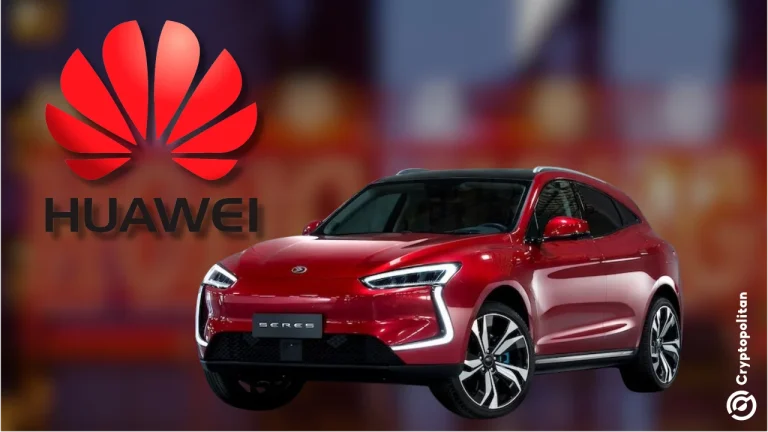Key Takeaways
- Chinese electric vehicle manufacturer Seres is set to debut on the Hong Kong Stock Exchange, following a substantial IPO that raised HK$14.3 billion ($1.8 billion).
- The company, already listed in Shanghai, priced its Hong Kong shares at HK$131.50 each, capping its marketed range, though this was notably lower than its recent Shanghai closing price.
- Seres has experienced significant growth, particularly through its partnership with Huawei, which has propelled its Aito brand into the luxury EV market.
- The IPO aims to expand Seres’s international presence, leveraging its impressive stock performance over the past five years in Shanghai.
- Despite Seres’s successful listing, the broader Chinese EV market faces challenges due to intense price competition and government efforts to curb further price cuts.
Seres Debuts in Hong Kong After Major Share Sale
Chinese electric vehicle company Seres is scheduled to commence trading in Hong Kong on Wednesday, following a significant public share sale that garnered HK$14.3 billion, equivalent to $1.8 billion, according to Bloomberg reports.
The company, which maintains a listing in Shanghai, set its Hong Kong share price at HK$131.50 apiece. This price point matched the upper end of its initial offering range, yet it remained 22% below its most recent closing price on the Shanghai exchange. The offering attracted participation from over 300 investors.
Shares of Seres showed early strength, surging in pre-listing gray market trading, indicating investor interest ahead of the formal listing. This initial public offering contributes to Hong Kong’s financial market, which is experiencing its most active year for new equity deals since 2021.
To date, 2025 has seen $51 billion raised through public offerings. For Seres, establishing a presence in Hong Kong is a strategic move to broaden its reach beyond mainland China, particularly following a remarkable 1,600% surge in its Shanghai-listed stock over a five-year period.
Seres Evolves from Minivans to Luxury EVs
Founded in 1986, Seres initially focused on manufacturing springs and shock absorbers. Over the years, the company diversified its product line, moving into motorcycles and subsequently minivans.
Currently, Seres is recognized for selling one of China’s best-selling luxury electric vehicles, the Aito M9. This success is largely attributed to its strategic collaboration with Huawei Technologies.
The Aito brand, a joint venture between Seres and Huawei, has been instrumental in positioning Seres ahead of established luxury automotive brands such as BMW and Mercedes-Benz within the Chinese market.
Despite facing intense price competition that has impacted Chinese automakers this year, Seres has maintained a strong long-term upward trend. The company has been listed in Shanghai since 2016, but the competitive landscape has presented challenges across the sector.
“Seres has achieved considerable success with its Aito brand in partnership with Huawei,” noted Eugene Hsiao, head of China equity strategy at Macquarie Capital. “Investors seeking exposure to the premium automotive sector may find these shares attractive.”
The company’s expansion into Hong Kong coincides with the city’s efforts to reaffirm its position as a global financial center. Hong Kong’s Financial Secretary, Paul Chan, recently highlighted that the local economy expanded by 3.8% in the third quarter, driven by robust exports, increased domestic consumption, and a resurgence in tourism.
This growth trajectory positions Hong Kong to meet its annual growth target of 2% to 3%. Furthermore, its wealth management sector is experiencing rapid expansion, with private banking assets increasing by 15%. Bloomberg Intelligence forecasts that Hong Kong will overtake Switzerland this year to become the world’s largest hub for cross-border finance.
Beijing Price War Impacts EV Sales
While Seres garners attention for its successful IPO, the broader Chinese electric vehicle sector is confronting significant pressures. The Chinese government has urged automakers to cease aggressive price reductions aimed at capturing market share.
This governmental push seeks to curb intense competition that has been eroding profit margins and raising concerns about potential declines in product quality.
💡 Although the immediate impact of these calls for price moderation has been limited, industry analysts anticipate a surge in sales before the end of the year as companies seek to capitalize on diminishing tax incentives and subsidies.
BYD, a leading global EV manufacturer, is among the companies currently feeling the financial strain. The company reported a 33% decline in its third-quarter net income, falling to 7.82 billion yuan (approximately $1.1 billion).
The company’s total revenue also decreased by 3% to 194.98 billion yuan, falling short of the 216 billion yuan estimated by analysts. Vehicle deliveries saw a slight decrease of 1.8% year-on-year, with BYD delivering 1.15 million new energy vehicles, encompassing both fully electric and hybrid models.
In contrast, competitors such as Geely Automobile and Chongqing Changan reported substantial sales growth during the same quarter, with increases of 96% and 84%, respectively. Both companies are actively expanding their electric vehicle offerings amidst ongoing market volatility.
⚡ Despite this growth, the overall health of the EV industry remains uncertain. Chinese authorities continue their efforts to manage the ongoing price war, concerned that a focus on price alone could jeopardize the long-term viability of the domestic automotive market.
Final Thoughts
Seres’s successful Hong Kong IPO highlights its growth potential, particularly through its partnership with Huawei in the premium EV segment, while also signaling Hong Kong’s ongoing efforts to bolster its financial markets.
However, the broader Chinese EV industry is navigating a challenging environment characterized by fierce price competition and regulatory scrutiny, impacting major players like BYD and prompting concerns about market sustainability.

